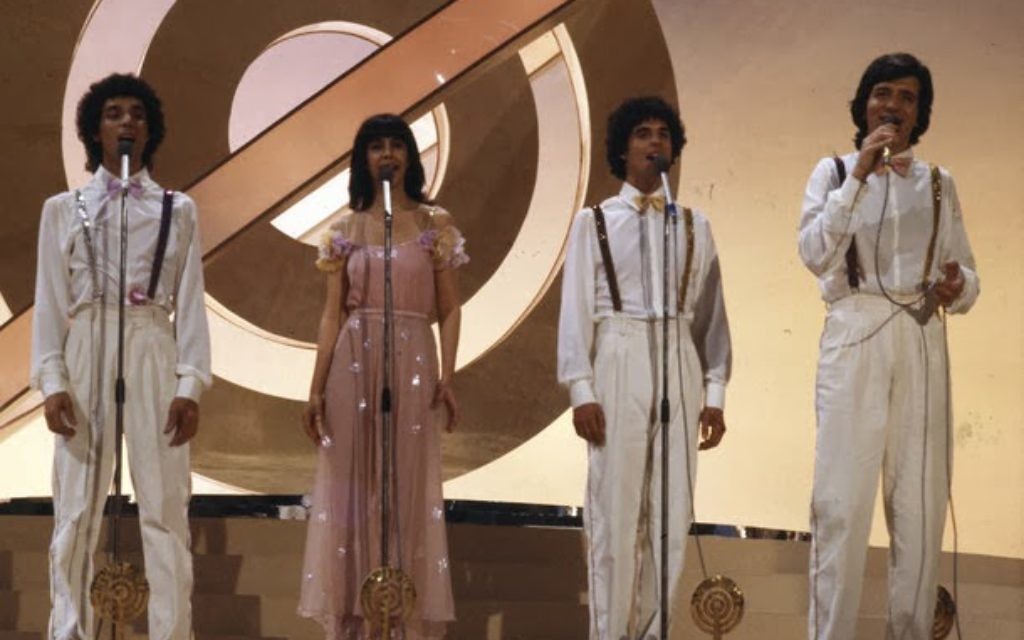Ranking Israel’s Eurovision Winners, Plus One
Netta Barzilai's "Toy" fits the times and makes several strong statements, but is it good music?
When Israeli singer Netta Barzilai won top honors at the 2018 Eurovision on May 12 with her song “Toy,” she became the fourth Israeli act to win the hotly contested 43-nation pop music competition, which began in 1956.
Israel first entered the competition in 1973 and has claimed 11 top-five finishes, including seven in the top three. That number is impressive, given that Israel now ranks sixth on the all-time leaderboard of Eurovision winners, behind Ireland (7), Sweden (6), France (5), the United Kingdom (5) and Luxembourg (5).
So I got to thinking: How does Netta’s “Toy” stack up to Israel’s previous entrants and winners? There’s no way to scientifically rank them, so I’m going to put them in order of cultural impact, as well as my opinions of the songs:
Get The AJT Newsletter by email and never miss our top stories Free Sign Up
- Honorable mention, Avi Toledano, “Hora,” 1982. After Israel’s back-to-back wins in 1978 and 1979, Toledano’s “Hora” placed second in 1982. The uptempo number, sung about the joy of watching Israelis dance the traditional folk dance, was beaten out by Germany’s “Ein bißchen Frieden,” performed by Nicole.
It was succeeded as Israel’s entry at the 1983 Eurovision by Ofra Haza’s “Hi,” which also took second place. “Hora” is a good song, and even though it has that cheesy, early-1980s, post-disco feel, it’s still audible in 2018.
- 4, Netta, “Toy,” 2018. Among all the praise (and calls for boycotts) after Israel’s latest Eurovision win, there’s something people aren’t talking about: This song is kind of terrible. Yes, the song is about women’s strength, and it’s super-relevant in the #MeToo era. That’s great.
And, yes, Netta is challenging what a successful singer can look like in 2018, but why couldn’t she make a song that was actually good? How does a song in which the singer makes chicken noises half the time have 59 million views on YouTube?
Maybe I’m out of touch, but I’m not a fan.
- 3, Dana International, “Diva,” 1998. The year was 1998, and Israel had not had a winner in Eurovision since 1979. Israeli singer Dana International, who had undergone a sex-change procedure in 1993, was selected to compete, sparking controversy from Orthodox and Conservative Jews, who tried to prevent her from representing Israel. Nevertheless, she competed and won.
The story is inspiring, but this song is pure late-’90s pop trash. It has been mentioned on multiple “worst Eurovision winners ever” lists, and listening to that dated synth drum track makes me glad musicians left the effect behind in the early 2000s.
- 2, Izhar Cohen, “A-Ba-Ni-Bi,” 1978. When Cohen captured Israel’s first Eurovision title in 1978 with “A-Ba-Ni-Bi,” the win was filled with controversy (seems like a common theme here). Jordanian television famously refused to broadcast Cohen’s performance and showed pictures of flowers instead. When Cohen won, Jordanian media announced that second-place Belgium had won.
The song itself is great and makes excellent use of an uptempo beat and a funky, disco-inspired groove, not to mention the syrupy-sweet harmonies from Cohen’s backing band, the Alphabeta. This song and Cohen will always be fondly remembered as Israel’s first Eurovision winner.
- 1, Milk and Honey, “Hallelujah,” 1979. It’s hard to win Eurovision once; it’s even harder to win it twice in a row. But that’s exactly what Israel did in 1979 with Milk and Honey’s “Hallelujah.” The group, which was put together for the sole purpose of competing in Eurovision, was unique in that it included a female lead vocalist and three male backing vocalists.
Starting slowly and building to an emotional, swinging crescendo with each backing vocalist who joins in, “Hallelujah” took top honors in Jerusalem (the previous year’s winner hosts). The song has since become something of a modern Jewish standard and is recognized by many who have not even heard of Eurovision.
Israel did not have a chance at a three-peat in 1980 because the contest was scheduled for Yom HaZikaron, Israel’s Memorial Day, and Israeli officials thought that Eurovision festivities would conflict with the melancholy tone of the day.
Concert Calendar
Sunday, June 10
Robby Hecht. Nashville-based singer-songwriter Robby Hecht performs with vocalist Caroline Spence at 6 p.m. at Eddie’s Attic, 515-B N. McDonough St., Decatur. Hecht was raised in Knoxville, and his lyrical prowess has earned him praise from his peers. In 2010 he won the prestigious Telluride Troubadour Contest. Tickets are $10 to $15; eddiesattic.com.
Sunday, June 24
Zale. Atlanta-based indie rocker Hannah Zale performs an acoustic set at 8 p.m. at Eddie’s Attic, 515-B N. McDonough St., Decatur. Zale performed at the Atlanta Jewish Music Festival in 2015 and 2018. Tickets are $12 to $16; eddiesattic.com.
Monday, June 25
Joshua Davis. A top 3 finalist on NBC’s “The Voice” in 2015, roots singer-songwriter Joshua Davis performs at 7 p.m. with Chely Wright at City Winery Atlanta, 650 North Ave., Old Fourth Ward. The Detroit native released an album, “The Way Back Home,” in September. Tickets start at $45; citywinery.com/atlanta/joshua-davis-chely-wright-6-25-18.





comments